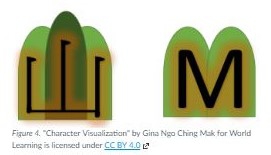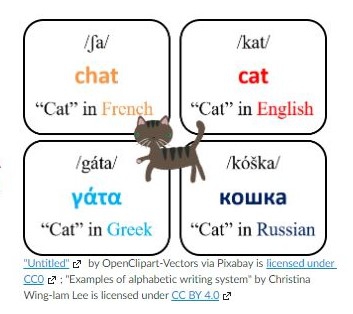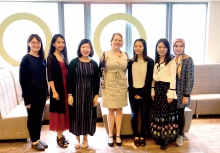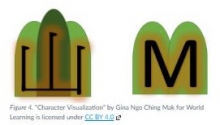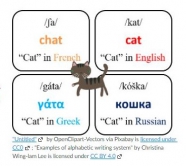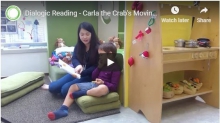CUHK
News Centre
Nearly 7,500 Students Around the World Enrolled in CUHK’s MOOC to Help Struggling Readers
The Chinese University of Hong Kong (CUHK) has launched a free massive open online course (MOOC) called “Teaching Struggling Readers around the World”, for teachers, caregivers, and other interested parties all over the world who are teaching struggling readers. The first run of the course, from 11 March to 28 April 2019, has finished with great success. Nearly 7,500 students around the globe enrolled to learn about teaching reading and to share ideas about their own experiences with struggling readers.
Struggling readers are children who experience difficulty learning to read. They may have trouble recognising letters and knowing which sounds the letters make. This course was designed to provide essential information and techniques for those who teach children struggling with reading how to read successfully. By learning the way languages differ, enrolled students can understand better what children have to do to master reading in their own language. At the same time, they are able to learn fascinating facts about other languages and engage with reading teachers from all over the world. The course also offers practical tips and resources to help individuals in their professional knowledge development.
Its content is based on research on literacy from around the world, much of which is detailed in two books authored by the course designer, Professor Catherine McBride, Professor of the Department of Psychology, CUHK. One of them, entitled, Coping with Dyslexia, Dysgraphia, ADHD: A Global Perspective was just published in 2019.
Professor McBride explained the motivation to launch the course, “Children learn to read in different contexts around the world. For example, in Hong Kong, the skills needed to read in Chinese and in English are often different. This course highlights skills needed to read in Chinese, English, and other scripts worldwide. We talk about basic principles but there is also some need for specialised knowledge, depending on the unique aspects of different languages, scripts, and cultures. The course covers efficient and accurate word recognition, how to build vocabulary knowledge, and how to read books together with children to get them to maximise their learning. We focus on this for typically developing readers, and also for those who are struggling maybe because they have dyslexia or other problems. This course is for everyone.”
The techniques presented in this MOOC have been found to be effective across learning contexts. Expert advice from internationally prominent researchers is featured in the MOOC. In the first run of the course, a team of professionals from several different countries, including the mainland and Hong Kong, the Philippines, Iran, Zambia, Canada, and the US, acted as volunteers to facilitate student discussions in the course. Students were able to exchange knowledge and ideas with one another on topics related to literacy in different cultures, scripts, and languages.
The course was launched through the Canvas Network, a learning management system that has made online learning available for more than 18 million higher education, K-12, and workforce users worldwide. It was created through a partnership between World Learning, a non-profit organisation dedicated to presenting a platform of free MOOCs for continuing education around the world, and CUHK, with a grant from CUHK’s Project Impact Enhancement Fund 2018-19.
Here is the link for the course:
https://www.canvas.net/browse/world-learning/courses/teaching-struggling-readers
Positive Feedback from enrolled students of the MOOC
2,950 enrolled students received a certificate, yielding an almost 40% completion rate, relatively high for a MOOC. At least 450 additional students got through at least two-thirds of the course. The enrolled students came from 99 countries including Barbados, Oman, Honduras, the Republic of Trinidad and Tobago, Latvia, Mongolia, Hong Kong and the mainland, representing a truly global teaching and learning reach. Students expressed very positive feedback on the effectiveness and relevance of strategies and linguistic concepts in their work or home circumstances.
An Indian student who signed as P.S. said, “The word chains were an excellent strategy which I tried with my learners in grade 4. It worked very well and helped in vocabulary development. All my learners participated and the environment was lively and engaging.”
S.G., a student from the US said, “Besides learning about the challenges of learning to read in different writing systems and orthographies, I appreciated the videos with reading researchers and reference lists. I learned some word building/vocabulary activities which I hope to try, and I learned how the section on dialogic reading with examples and practice was so helpful.”
Another student, R.B. from the Philippines also commented, “The course has helped me towards becoming a reading specialist, one day. When my other supervisors and teachers ask about how to help their struggling readers, I now have so many things to share based on my readings and downloaded materials, as well as from the experiences of other MOOCers.”
Professor Catherine McBride, Professor of the Department of Psychology, CUHK (middle) and the teaching team of the “Teaching Struggling Readers around the World” MOOC.



